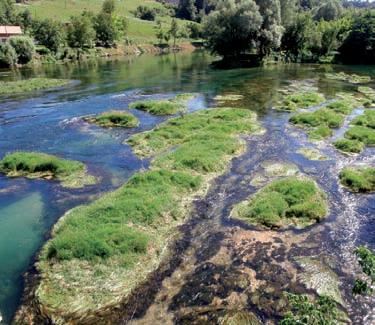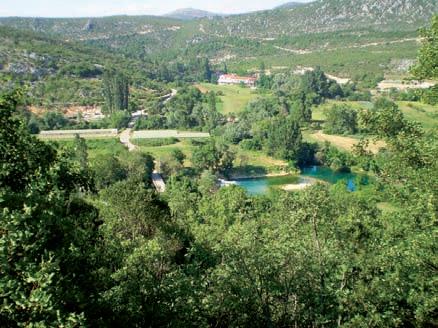
4 minute read
DEVELOPMENT OF ECO AND SUSTAINABLE TOURISM IN BIH THROUGH SUPPORT TO THE CONCEPT OT SUSTAINABLE TOURISM
ABOUT CONCEPT OF RESPONSIBLE TOURISM
Introduction
Advertisement
With 200 million of employees, tourism is the biggest industry in the world which incorporates a wide range of economic activities and numerous studies predict its constant further growth. Despite the threat of terrorism, for the rst time in history the number of international tourist arrivals exceeded 780 million in 2010. e World Tourist Organization anticipates that by 2015, the number of international tourists will reach 860 million and continue to grow to 1.56 billion by 2020.
Tourism is considered an important source of economic wealth (to numerous small-island economies, tourism represents an important part of their annual revenues) and a global phenomenon that includes an increased travel of people to remote destinations. It has been generally acknowledged that the contribution of tourism to the socio-economic development and cultural exchange is tremendous.
Today tourism represents a complex phenomenon whose consequences, in terms of its impact on our environment, culture, society and economy, can no longer be ignored. is is best con rmed by the gure of almost 6 billion annual travels (of which 500 million are international ights) and 127 million employees in the world. It is estimated that tourism makes 6% of the net domestic product of the planet. Unfortunately, the consequences of such mass tourism can be devastating, especially in the southern part of the world where there is a less equitable distribution of the revenues generated through tourism that would o set the loss of values and traditions. Besides, such forms of mass and luxurious tourism can o en have negative e ects on the environment, culture and society as a whole. For the above reasons, tourism calls for a careful consideration by all players, citizens and institutions, tourist industry and end users.
Responsible tourism is a direct opposite of the mass tourism. It is the way of travel that primarily implies the awareness of oneself and one’s own actions even though they may include some sort of purchase (of a ticket, gi or overnight accommodation), awareness of the reality of the country of our travel (social, cultural, economic, and environmental) and the possibility of an enlightened and, consequently, a di erent choice. erefore, a responsible tourism is an ethical and conscious travel that embraces the countries of destination, their people and nature with respect and availability.
A travel that seeks to contribute to the lessening of social di erences, protection and conservation of the natural environmental and respect of local cultures, customs and beliefs and a genuine and direct cultural exchange and promotion of the universal principles of equality, sustainability and tolerance.
SUSTAINABLE DEVELOPMENT AND RESPONSIBLE TOURISM

Sustainable development is a number one concept of the international development. Principles that uphold sustainable development have been around for centuries, but it was only in 1987 that the term “sustainable development” received international recognition and entered into o cial usage (responsible tourism, so tourism, minimal tourism or alternative tourism are all terms used in a similar sense). In 1987, the de nition of sustainable development by the Burnt land Commission was a development that meets current needs without the possibility of endangering future generations to satisfy their needs. It leads towards the kind of management that uses all resources in the way that economic, social and esthetic needs are met, while at the same time protecting the cultural integrity, basic environmental processes and biological diversity.” (Our Common Future, 1987).
Since its rst de nition, the concept of sustainable tourism continued to capture more and more attention and popularity and soon came to stand for much more than the original de nition implied. Sustainable development can have many meanings, depending on the context in which it is used. In the context of international development, sustainable development implies a complex correlation between: • social • economic, and • environmental aspects required for a long-term sustainability. e above can be applied to the development and management of responsible tourism and all types of tourism and tourist destinations, including mass tourism and other segments of tourism. e idea of sustainability – and its three pillars: economic, environmental and social – is now taken into account in the decision-making in many areas. In tourism, as well as other industries, implementation of the sustainable development depends on how corporations will accept their social and environmental responsibility towards society and introduce changes in their business practice in order to improve their viability. is obligation is built into the principle of corporative social responsibility that de nes the guidelines of sustainable activities in business operations. e World Business Council for sustainable development de nes social corporative responsibility as an obligation in business operations that endeavors to contribute to the sustainable economic development, cooperation with employees, their families, local community and society as a whole and to improve their life quality.








